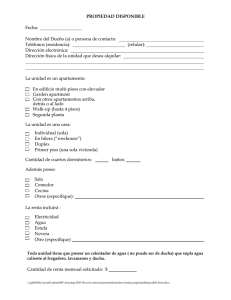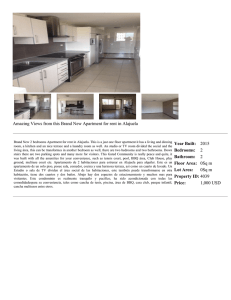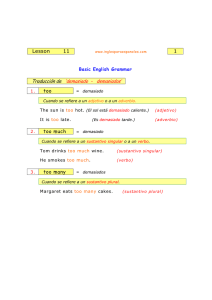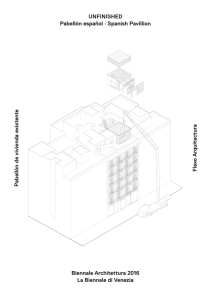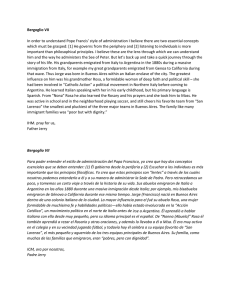Evidencia_5_Statements_and_questions
Anuncio
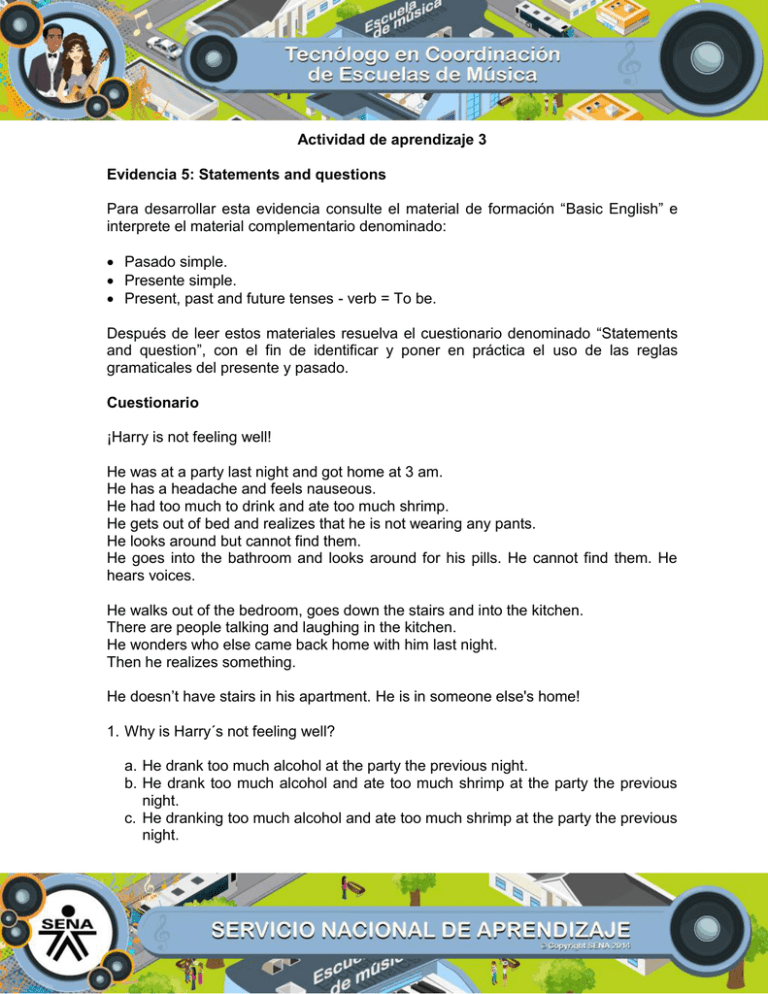
Actividad de aprendizaje 3 Evidencia 5: Statements and questions Para desarrollar esta evidencia consulte el material de formación “Basic English” e interprete el material complementario denominado: Pasado simple. Presente simple. Present, past and future tenses - verb = To be. Después de leer estos materiales resuelva el cuestionario denominado “Statements and question”, con el fin de identificar y poner en práctica el uso de las reglas gramaticales del presente y pasado. Cuestionario ¡Harry is not feeling well! He was at a party last night and got home at 3 am. He has a headache and feels nauseous. He had too much to drink and ate too much shrimp. He gets out of bed and realizes that he is not wearing any pants. He looks around but cannot find them. He goes into the bathroom and looks around for his pills. He cannot find them. He hears voices. He walks out of the bedroom, goes down the stairs and into the kitchen. There are people talking and laughing in the kitchen. He wonders who else came back home with him last night. Then he realizes something. He doesn’t have stairs in his apartment. He is in someone else's home! 1. Why is Harry´s not feeling well? a. He drank too much alcohol at the party the previous night. b. He drank too much alcohol and ate too much shrimp at the party the previous night. c. He dranking too much alcohol and ate too much shrimp at the party the previous night. d. He drankin too much alcohol and ate too much shrimp at the party the previous night. 2. Why do you think he cannot find his pills? a. b. c. d. Because he is in someone ele’s apartment. Because he is not someone else’s apartment. Because he is in someone else’s apartment. Because he is no someone else’s apartment. 3. When does he realize that he is not in his own apartment? a. b. c. d. When he remembers that his apartment doesn't have stairs. When he remembers that his apartment does have stairs. When he remembers that his apartment doesn't have rooms. When he remembers tha his apartment doesn't have rooms. 4. Why doesn’t he realize that he is not in his apartment when he wakes up? a. b. c. d. He is probably asleep and has a hangover. He is probably half asleep and has a hangover. He is probably half has a hangover. He is probably half ha a hangover. 5. What do you think he should do? a. I’m not sure. He could run out and find his own apartment, but he is not wearing any pants. b. I’m sure. He could run out and find his own apartment, and he is wearing any pants. c. I’m not sure. He can run out and find his own apartment, but he is wearing any pants. d. I’m no sure. He can run out and find his own apartment, but he is wearing any pants. Desarrolle esta evidencia con la herramienta ofimática de su preferencia y envíe el archivo al instructor a través de la plataforma virtual de aprendizaje. Pasos para enviar la evidencia: 1. Clic en el título de esta evidencia. 2. Clic en Examinar mi equipo y buscar el archivo previamente guardado. 3. Dejar un comentario al instructor (opcional). 4. Clic en Enviar. Nota: esta evidencia es de carácter individual. Recuerde revisar la guía de aprendizaje con el fin de verificar que ha realizado todas las actividades propuestas, saber cómo desarrollarlas y entregarlas correctamente. Criterios de evaluación Interpreta un texto sencillo y puede construir un mapa conceptual basado en el mismo.

